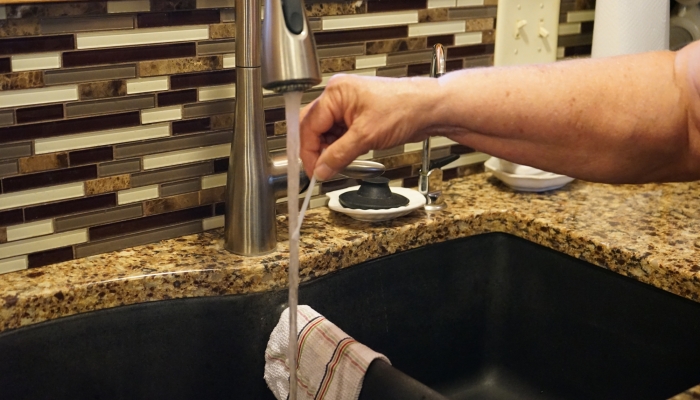Water Quality Test Kits and RO System Funding Available
If your home’s water comes from a private well in Nebraska, you may have elevated levels of common nutrients found in agricultural fertilizers in your drinking water. Consuming water with elevated levels of nitrate-nitrogen can have significant health risks. Annual testing of your water is an important way to protect the health of everyone in your home.
Thanks to a partnership with UNL, the Upper Big Blue NRD can now mail simplified at-home test kits to district residents for free that will indicate if there is an elevated level of common contaminants in the water. To request a kit, call (402) 362-6601 or email info@upperbigblue.org with your home mailing address. The at-home kits are not as sensitive as having a sample tested in the lab, but they do provide a simple way to determine if additional testing is required and to identify what further steps need to be taken to improve drinking water quality, such as installing a reverse osmosis filter.
Funding is available through the Nebraska Department of Environment and Energy for homeowners and communities with elevated nitrates to install reverse osmosis systems. More information on these resources is available here.
Why Should I Test My Water?
Numerous scientific studies have looked at the relationship of nitrate in drinking water on human health and linked high concentrations of nitrate in drinking water to adverse health outcomes. The strongest links are for methemoglobinemia, colorectal cancer, thyroid disease, and neural tube defects (birth defects of spine, brain, and spinal cord). Agrichemicals in drinking water are also linked to increased heart rate, nausea, headaches, and abdominal cramps; cancers including pediatric brain cancer, kidney cancer, bladder cancer, and non-Hodgkin’s lymphoma. Other studies are also examining a possible link between these contaminants and Alzheimer’s, diabetes, and Parkinson’s disease.
Nebraska has one of the highest rates of some pediatric cancers, which may be linked to agrichemicals in drinking water. When it comes to health concerns and drinking water quality in Nebraska, the most vulnerable populations are young infants (less than six months old), pregnant women and children in-utero, and people with oxygen transport or delivery conditions like anemia, cardiovascular disease, lung disease, and sepsis.
The EPA guideline for safe drinking water is less than 10 parts per million of nitrate. Municipalities are required by law to provide water that meets the EPA criteria, but for the many Nebraskans whose water comes from a private source, the quality of the water is the consumer’s responsibility.
For private well owners, it’s important to test drinking water annually, as results can change from year to year. If the results of the at-home water quality test reveal greater than 5 parts per million of nitrate, the NRD staff recommends following up with a lab test for verification and to determine next steps to ensure safe drinking water. NRD lab testing for nitrate and bacteria is always free for district residents.

